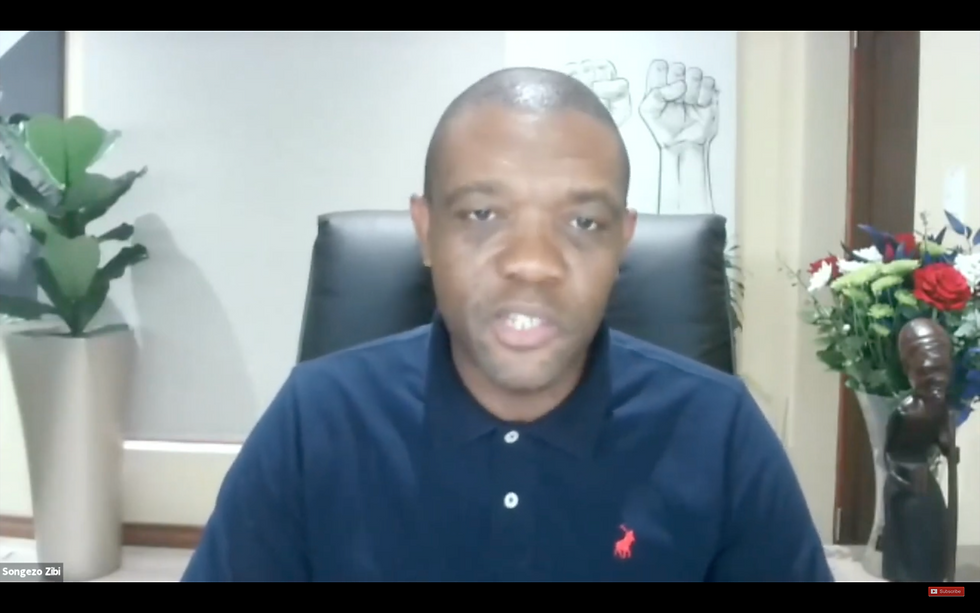South African media need to earn trust
- frayintermedia

- May 18, 2021
- 3 min read
Journalists play a crucial role in society but that does not mean they have a special right to exist, says Alan Rusbridger, former editor of The Guardian.
“The only way we can justify our right to exist is by being better than the internet,” Rusbridger said.

Rusbridger spoke at the South African National Editors’ Forum (SANEF) Media Ethics and Credibility Conference held on May 15 and which brought together over 100 media stakeholders to deliberate key recommendations in the SANEF-commissioned inquiry.
The inquiry was led by retired Judge Kathy Satchwell and panel members author and veteran journalist Rich Mkhondo and award-winning journalist Nikiwe Bikitsha. The report investigated ethical lapses facing local journalism, in order to find solutions to enhance quality, ethical journalism in South Africa.

SANEF secretary-general Mahlatse Mahlase said the inquiry mapped a journey of introspection at a time that SANEF was worried about the erosion of trust in the media.
“[The inquiry] was not to apportion blame or culpability on any individual journalist or media entity, but it was to strengthen adherence to ethical codes and enhance the public confidence in the practice of journalism,” Mahlase said.
From an international perspective, Rusbridger said there are some “basic things” journalists can do to help restore trust in their craft such as correcting mistakes, showing evidence and being open to conversations and challenges.
“Lots of journalists don't do the very things I've just described,” he said.

Former Business Day editor Songezo Zibi noted that the credibility of journalism was drawn from their integrity and it is important for journalists and editors to remain humble and committed to truth out of respect for the public and its welfare.
“Journalists do not always remember this sacred duty. They can be careless, arrogant and untruthful. When their mistakes are pointed out, they can double down and, as the saying goes: ‘stand by their story.’ This is not a good thing, and although not pervasive, we still see it too often for comfort,” he chastised.
Judge Bernard Ngoepe called on the media to work towards a “perfect society”.

“Someone may say, ‘it's impossible to build a perfect society.’ That may be true but we have to accept that it's going to be a perpetual strive,” Ngoepe said.
Having chaired the Appeals Panel for the South African Press Council for about a decade, Ngoepe said it was “disappointing” that some journalists sometimes used South African law or the local press code to excuse their ethical lapses.
“It is not enough to think it is acceptable to print just because the law or the code does not prevent it. Journalists should be guided too by whether it makes a positive contribution to society,” Ngoepe said.
While the local media faces ethical and credibility challenges, Rusbridger highlighted that the issues mirrored larger international ones.
“The UK had a really bleak period with the whole phone hacking saga that The Guardian revealed [...] I think Fox News is a giant ethical lapse in itself,” he said.
Zibi described Fox News, criticised for its support for the American Republican party, as a threat to democracy worldwide.
“In South Africa, we have our own instances of owners using the platforms they own to drive a nefarious, damaging agenda,” he said.
While the pay for journalists is poor and the work often dangerous, Zibi implored those in the industry to uphold their “sacred duty” in continuously earning credibility with their audiences.
“Let us continue to respect it and treat it with the reverence it deserves, for to do so, is to honour the blood and tears of those who fought for this system of self-government we ought to protect with all we have,” Zibi said.
Working alongside SANEF Committee Chairs, frayintermedia helped organise the online summit.
Watch the Media Ethics and Credibility conference here.
SANEF hosted a four-part webinar series in preparation for the conference. Watch the videos here.





Comments